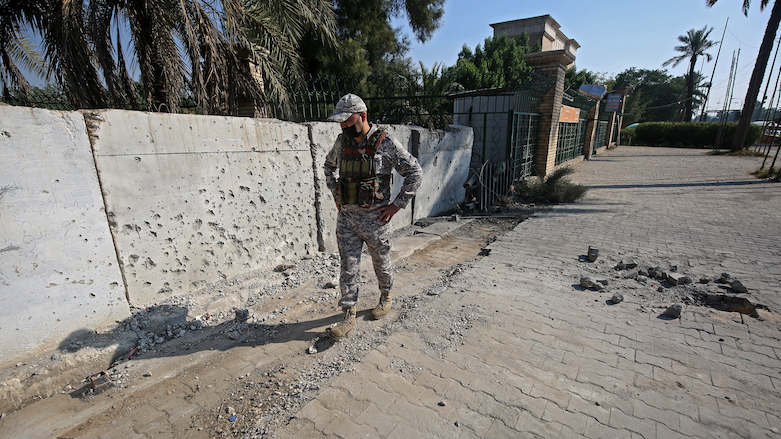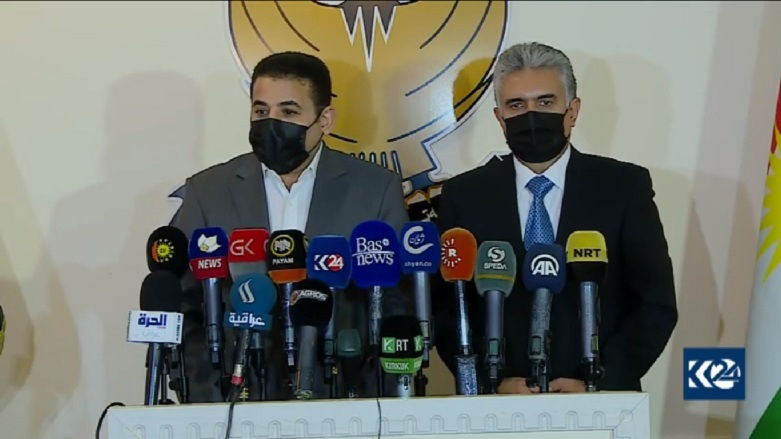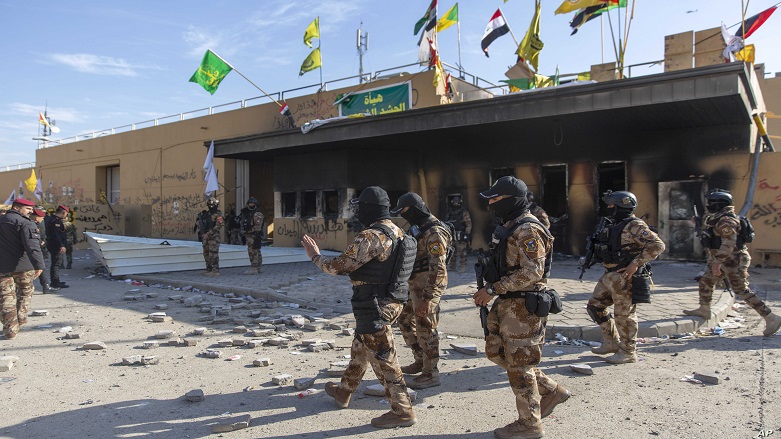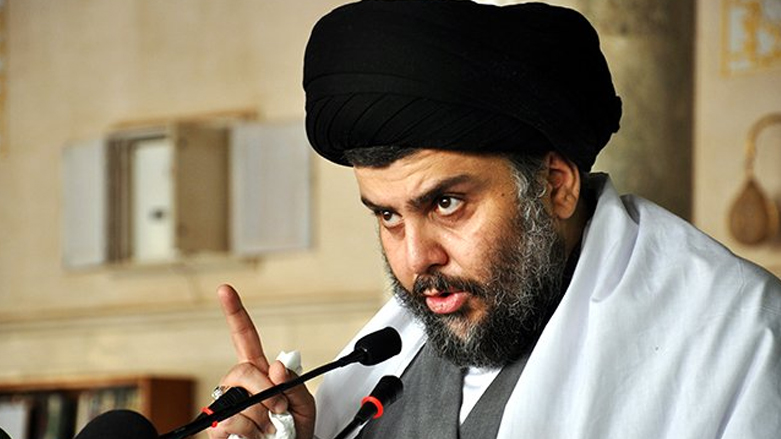US awaits Iraq’s investigation into rocket attacks on Green Zone

WASHINGTON DC (Kurdistan 24) – The US response to Tuesday night’s rocket attacks on Baghdad’s Green Zone, where the US and other foreign embassies are located, appears to be that it will act in close coordination with the government of Iraqi Prime Minister Mustafa al-Kadhimi.
“We have seen the reports that Iran-backed militias are taking credit for a rocket attack in Baghdad yesterday, which killed an Iraqi child and injured other civilians,” a State Department official told Kurdistan 24 on Wednesday.
“We understand the Government of Iraq is currently investigating,” and “we have no further comment at this time,” he stated.
“Lawless militias supported by Iran’s Quds Force continue to destabilize Iraq, kill Iraqi citizens, and threaten Iraq’s sovereignty,” the US embassy in Baghdad tweeted. “We call on the Government of Iraq to arrest and hold accountable those who continue to perpetrate acts of violence against the Iraqi state.”
Washington has welcomed Iraq’s new government, as Kadhimi is the first Iraqi Prime Minister—since 2005, when elections were first held following the overthrow of Saddam Hussein—who does not come from a sectarian, Shia Islamic party.
Tuesday’s assault broke a month-long ceasefire which was proclaimed by Iranian-backed militias on Oct. 11 and which itself was the product of US threats of serious retaliation.
The US Threats that Produced the Ceasefire
The ceasefire proclaimed by the militias last month came after very strong US warnings, that followed escalating attacks on US installations. Those warnings were relayed by Secretary of State Mike Pompeo to Iraqi President Barham Salih on Sept. 20 and, a week later, to Prime Minister Kadhimi.
In those phone conversations, Pompeo told each Iraqi leader that the attacks must stop, or the US would close its embassy in Baghdad, transfer its diplomatic staff to Erbil, and launch a broad assault against the militias.
Pompeo named two militias in specific: Kata’ib Hizbollah and Asa’ib Ahl al-Haq.
The highly-regarded (and well-connected) Washington Post columnist, David Ignatius, reported Pompeo’s warnings, writing in late September that the embassy’s closure would be “prelude to heavy US airstrikes against the militias.”
The most dramatic account of those conversations was provided a week later by Middle East Eye (MEE), a media outlet run by the veteran British journalist, David Hearst, who long reported on the region for The Guardian.
“The United States has drawn up a list of 80 sites in Iraq linked to Iranian-backed groups that it plans to target if it follows through with a threat to close its embassy in Baghdad,” MEE said in a report from Baghdad, citing multiple Iraqi sources.
“Pompeo shared hundreds of satellite images of the 80 sites” with Salih during their phone conversation, it said, as it stressed that Pompeo was showing that his threats were real and not empty words.
Positive Effect of Curbing Iranian-Backed Militias
And they appeared to have a quick, salutary effect in Baghdad. Just days after Pompeo’s conversation with Salih, the mercurial, but influential, Iraqi cleric, Muqtada al-Sadr, called for the formation of a committee to investigate “the security breaches that diplomatic missions and official state headquarters are exposed to, in a way that harms Iraq’s reputation in the international community.” Kadhimi quickly endorsed Sadr’s call.
Curbing the militias also appears to have facilitated the Oct. 10 agreement between the federal government and the Kurdistan Regional Government (KRG) on re-establishing security in Sinjar, the Yezidi homeland.
The area fell under the control of Iraqi militias and elements tied to the Kurdistan Workers’ Party (PKK) in late 2017 after Baghdad’s attack on the disputed territories in a military operation organized by Qasim Soleimani, head of the Quds Force of Iran’s Islamic Revolutionary Guard Corps, later assassinated in a US drone strike.
Re-establishing security in Sinjar is a necessary prelude to restoring services and rebuilding the area, so displaced persons can return to their homes.
On Tuesday, Iraq’s National Security Adviser, Qasim al-Araji, visited Erbil to finalize the implementation of the Sinjar Agreement, which the United Nations Assistance Mission for Iraq (UNAMI) is also backing.
Araji stressed that any force that is not part of the officially-sanctioned security plan—a clear reference to militias now operating in the area—will not have a place in Sinjar.
Of course, that is only possible, if the authority and power of those militias is diminished from what it once was.
Why the Ceasefire Violation?
It remains to be seen if further attacks will follow on Tuesday’s assault. There were none on Wednesday.
Possibly, Tehran or its Iraqi proxies sought to exploit the disarray in Washington that has followed the Nov. 3 elections. The relatively close results and the repeated challenges to them by President Donald Trump may have created the impression that the US would not respond meaningfully.
Yet one aspect of the disarray is Trump’s desire to strike Iran’s nuclear program. Last week, he asked his senior advisors for military options. But they strongly advised against such action, warning it could easily escalate into a wider conflict.
Trump, nonetheless, “might still be looking at ways to strike Iranian assets and allies, including militias in Iraq,” US officials told The New York Times.
One might think that would induce caution among Iran and its allies, but, possibly, they understood the news to mean that Washington now hesitated about striking any Iranian-linked targets, for fear of a broader war.
Alternatively, Tuesday’s attack followed shortly after the US Acting Secretary of Defense announced major troops cuts in Afghanistan and more limited troop cuts in Iraq.
Read More: US announces troops cuts in Afghanistan, Iraq, but not in Syria
Possibly, that announcement emboldened the militias. Or, possibly, Tuesday’s attack will prove to be an aberration.
Time will tell.
Editing by Karzan Sulaivany



